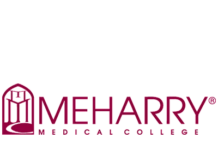Here is this week’s news of grants or gifts to historically Black colleges and universities or for programs of particular interest to African Americans in higher education.
 Vanderbilt University in Nashville, Tennessee, received a three-year, $350,000 grant from the Andrew W. Mellon Foundation for research to seek out patterns in the way people and organizations think about equity, diversity, and inclusion. The grant is under the direction of Paul C. Taylor, the W. Alton Jones Professor and professor of philosophy at the university. “Everybody is talking about equity, diversity, and inclusion, but it’s not clear we’re all talking about the same things,” Dr. Taylor said.
Vanderbilt University in Nashville, Tennessee, received a three-year, $350,000 grant from the Andrew W. Mellon Foundation for research to seek out patterns in the way people and organizations think about equity, diversity, and inclusion. The grant is under the direction of Paul C. Taylor, the W. Alton Jones Professor and professor of philosophy at the university. “Everybody is talking about equity, diversity, and inclusion, but it’s not clear we’re all talking about the same things,” Dr. Taylor said.
Historically Black Meharry Medical College in Nashville received a $500,00 grant from Oracle that will support 10 students in the School of Applied Computational Sciences. Students admitted to entering classes in 2023 and 2024, will be eligible to receive $25,000 toward their education at Meharry. The School of Applied Computational Sciences pursues academic and research programs in data science that serve the healthcare, business, and technology communities. The school offers a master’s degree in data science and a master’s degree and doctorate in biomedical data science.
The College of Science, Engineering and Technology at historically Black Texas Southern University in Houston earned three grants from the U.S. Department of Transportation totaling $2.8 million for transportation infrastructure research over the next five years. The grant will fund a University Transportation Center on campus that will advance research and education programs that address critical transportation challenges facing the nation.
Historically Black Delaware State University has received a two-year, $300,000 grant award from the National Organization of Sisters of Color Ending Sexual Assault. The grant will fund the establishment of a dedicated sexual assault response and prevention program on campus. The program will include the establishment of a Safe Space Project, which will be based at the university’s Hope House, that will provide both a physical space and more importantly, a supportive and safe space for survivors, allies, and wellness professionals to engage in the work of healing and restoration.










